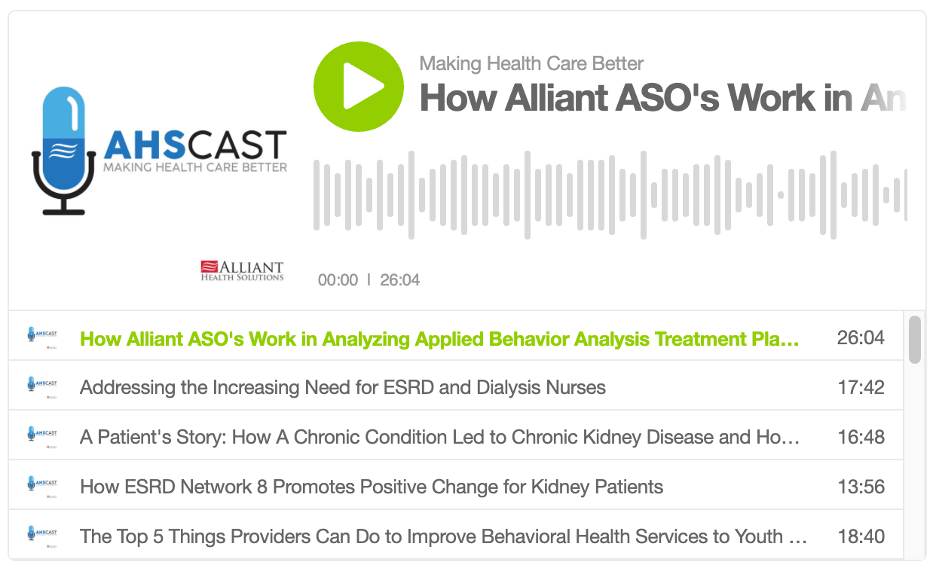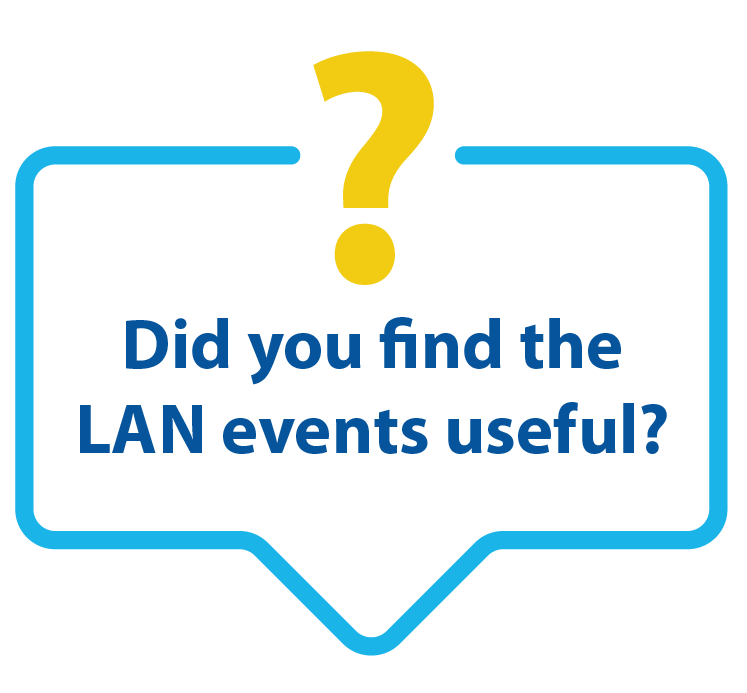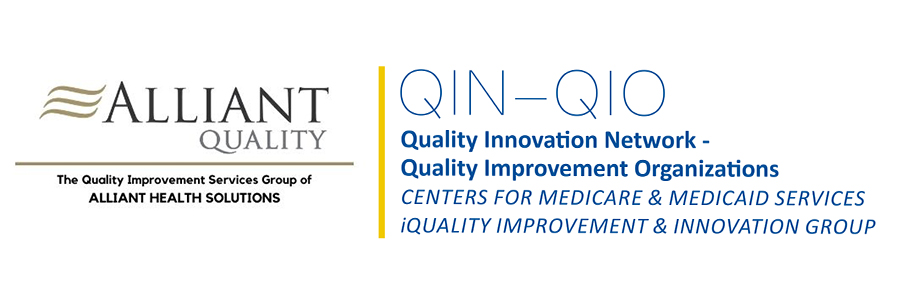|
|
|
|
Please share this email with friends or colleagues using these links:           
(Please do not forward the email as it may impact your subscription settings)
|
|
A monthly newsletter highlighting events and resources for Nursing Homes & Community Coalitions
In This Issue:
|

CMS Releases New Resources To Support COVID-19 Vaccinations
The Centers for Medicare & Medicaid Services (CMS) released two new resources for long-term care facility (LTCF) care teams and other health care providers to support COVID-19 vaccinations:
- Optimizing Vaccine Recipient Education: Aids health care providers in building patient confidence in COVID-19 vaccines. The impactful strategies shared in this tool will help reinforce the provider’s role as a trusted source for vaccine information. Download Tool
- Considerations for Long-Term Care Facilities on Acquiring COVID-19 Vaccination Resources: This document provides LTCFs with information about acquiring COVID-19 vaccination resources for staff and residents. Download Resource
|
|
|
|
Our team is collecting and curating the essential trainings, events, resources, and vaccine updates about COVID-19 on our website so you can visit one page to find the information you need. We've also outlined the essentials below.
View All COVID-19 News & Resources
Training & Resources
- Interim Public Health Recommendations for Fully Vaccinated People – Summary of Recent Changes (Updated information for fully vaccinated people based on new evidence on the Delta variant) View Recommendations
- When You’ve Been Fully Vaccinated: How to Protect Yourself and Others View CDC.gov
- CDC Vaccine Finder Download Flyer | Visit VaccineFinder.org
- CDC Community Guide on Increasing Vaccine Uptake in Racial & Ethnic Minority Communities View Guide
- CDC Best Practice Guide on COVID-19 Vaccine Equity for Community & Faith Based Organizations View Guide
- CDC Ranks States by COVID-19 Vaccines Administered View Daily Data Tracker
CDC Webpage Highlights Info and Training on How to Enroll as a COVID-19 Vaccinator
CDC posted a new web page, How to Enroll as a Healthcare Provider, for providers seeking to become COVID-19 vaccinators. The web page contains information on how to become a COVID-19 vaccinator and the training and resources available to prepare for that role. Only healthcare professionals enrolled directly through a health practice or organization as a vaccination provider can legally store, handle, and administer COVID-19 vaccines in the United States Healthcare personnel can play a critical role in helping to end the pandemic. Learn how you can be a part of COVID-19 vaccination efforts even without being enrolled as a COVID-19 vaccination provider. How to Enroll
We Can Do This: HHS Campaign To Increase COVID-19 Vaccine Confidence
The U.S. Department of Health and Human Services created a nationwide COVID-19 public education campaign to increase public confidence and uptake in COVID-19 vaccines while reinforcing basic prevention measures such as wearing masks and social distancing.
Through consistent, fact-based public health messaging, the campaign helps the public make informed decisions about their health and COVID-19, including steps to protect themselves and their communities. The public education activities are organized around three themes:
- Slow the Spread: Basic prevention measures that should be taken while waiting for the vaccine
- Building Vaccine Confidence: Information and resources to build vaccine confidence, timed to support action when vaccines are available
- Preparing the Nation: Fact-based, scientific information about vaccine development, safety, and effectiveness
Download Campaign Resources and Toolkits
|
|
|
Leadership Lessons
Words of advice from leaders on the front lines.
This month’s leadership lesson is from JoVonn Givens, MPH, Task Order Director at Alliant Quality, the quality improvement group of Alliant Health Solutions, the QIN-QIO for Alabama, Florida, Georgia, Kentucky, Louisiana, North Carolina, and Tennessee.
Tips for Confronting Health Information and Improving Health Literacy
The U.S. Surgeon General, Vivek H. Murthy, MD, MBA, recently released an advisory on confronting health misinformation. In it, Dr. Murthy encourages everyone to take action and identify and address misinformation to make informed decisions. He also provides specific action steps for all sectors of our society, from individuals to media to health care professionals to government.
With National Immunization Awareness Month upon us and the recent increase in the number of positive COVID-19 cases, this is a great opportunity to lead the way in confronting health misinformation and improve health literacy. Here are a few things that you can do:
- Be patient and extend grace to yourself and others. In the Leadership Lesson I shared in December 2020, I wrote about Finding Grace & Peace in Troubled Times. These are suggestions that can be used at any time.
- Provide information from reputable sources, such as the Centers for Disease Control and Prevention, and your local health department. Guidance has changed this past year, and we have learned more about infection control as we have dealt with this pandemic. It is OK not to have the right answer, but there are people who do!
- Identify champions in your healthcare facility to help spread awareness and share their vaccination experiences. Champion leaders come in all shapes and sizes. It can be a patient, family member, direct care worker, administrative staff person or clinician.
Read More on Our Website
Best Practice Corner
Each month Alliant Quality collects exemplar practices from organizations across the seven-state region. Thank you for your leadership, creativity, and perseverance.
Florida’s Bayshore Pointe Nursing and Rehab Center Offers Weekly “Vaccination Friday” Clinics
Bayshore Pointe Nursing and Rehab Center in Tampa, Fla., has a weekly “Vaccination Friday” vaccination clinic. Vaccinated staff receive a shirt to wear on Fridays. Their corporation provides incentives for giveaways for Bayshore and their other facilities. Read More
Healthier Together Announces $500K in Grants to North Carolina Community Organizations
Healthier Together, a public-private partnership between the North Carolina Department of Health and Human Services and N.C. Counts Coalition, has awarded $500,000 in grants to support community groups that will help North Carolina achieve its goal of delivering equitable access to COVID-19 vaccines. Read More
Georgia Recovery Project Extended Through December 2021
The Department of Behavioral Health and Developmental Disabilities (DBHDD) launched the Georgia Recovery Project (GRP) on May 1, 2020. The GRP is funded through a partnership between the Federal Emergency Management Agency and the Substance Abuse and Mental Health Services Administration. These federal partners recently approved an extension for the GRP through December 15, 2021, allowing the GRP to provide emotional support to Georgians during the COVID-19 public health crisis. Learn More About the GRP
Alabama Hospital Association Launches Campaign to Increase Vacation Rates
The Alabama Hospital Association announced their “We Can Do This Alabama” campaign to promote greater vaccination levels among state residents. The “We Can Do This Alabama” effort enlists Alabamians to become local champions and share information with their family, friends, colleagues and community on the importance of getting vaccinated. Participants in this grassroots effort are asked to register as local champions to access helpful messaging resources. Then for four weeks, champions are asked to encourage three new people each week to get the vaccine and recruit five additional people to serve as local champions. Learn More
Do you have a promising practice to share? Please reply to this email and we will feature you in an upcoming issue.
|
AHSCAST - Making Health Care Better
 |
Everyone deserves quality health care.
Tune into the Alliant Health Solutions Making Health Care Better podcast every other Thursday as they interview guests committed to making health care better. If you are a health care consumer, provider, insurer, system, or consultant, this is the podcast for you. View All Podcast Episodes |
|
Events
|
| Upcoming Learning & Action Network (LAN) Events
- Nursing Homes: QI Tactics for Increasing & Documenting Short Stay Vaccination Rates
Tuesday, August 17 at 2 p.m. ET / 1 p.m. CT (30 min.)
Despite the industry-wide focus, vaccination rates still reflect an opportunity for improvement in most post-acute care settings. Join our conversation with experienced SNF clinician leaders as we discuss how quality improvement tools, data and best practices can help improve processes to increase vaccination rates.
Register Now | View Agenda
-
Community Coalitions: “Daunting”– Discharge Experience Perspectives from Older Adults with Diabetes
Thursday, August 26 at 12:30 p.m. ET / 11:30 a.m. CT (30 min.)
Patient and family experiences with transitions of care provide insights into opportunities to improve cross-setting care transitional processes and improve customer experience scores. Together, we will learn from Dr. Jacqueline Lamanna’s research how patients and families felt about their transition experiences and their perceptions of the greatest risk factors for readmission.
Register Now | View Agenda
Register for Upcoming LAN Events
Last Month's Learning & Action Network (LAN) Events
- Nursing Homes: Understanding F-758: A Practical Approach to Gradual Dose Reductions (GDRs) with a Definite Purpose
Recorded on July 20, 2021
View Recording | View Slides
- Community Coalitions: Optimizing Care Transitions of Older Adults with Diabetes
Recorded on July 22, 2021
View Recording | View Slides

Were You Able to "Use Tomorrow" What You Heard During the LAN Events?
If Yes, Click Below.
Nursing Homes LAN Attendees: Click here
Community Coalition LAN Attendees: Click here
Previous COVID-19 Events
Upcoming Infection Prevention Shop Talks
- August 2021 Shop Talk Call
Thursday, August 19 at 2 p.m. ET / 1 p.m. CT (60 min.)
Find out about updates and support for surveillance, tracking and infection prevention in nursing homes using the National Healthcare Safety Network (NHSN). This webinar is focused on submitting COVID-19 data, but may include other components such as C.diff, UTIs, and hand hygiene.
Register Now
|
Resources
|
|
Remembering Those We Lost on International Overdose Awareness Day
August 31, 2021, is International Overdose Awareness Day. It is a time for people to share the story of someone they have lost to drugs and support others struggling because of a recent loss. This day of awareness began in Melbourne, Australia, in 2001. This is the 20th year of its observance. Overdose Awareness Day. It is a time for people to share the story of someone they have lost to drugs and support others struggling because of a recent loss. This day of awareness began in Melbourne, Australia, in 2001. This is the 20th year of its observance.
This year, Overdose Awareness Day is particularly significant. Preliminary data released by the CDC in July shows that overdose deaths in America climbed above 93,000, with 28 states seeing overdose deaths increase by more than 30% in 2020. While the impact was widespread, residents of southern states and people of color were the hardest hit. Additionally, the use of the opioid overdose-reversing medication naloxone has declined in the United States during the COVID-19 pandemic.
Educating people about naloxone and distributing it in highly populated areas could help reduce some of the increases in fatal opioid overdoses that are on the rise. Overdoses can be reversed if you know what to do and you act in time with naloxone. So it’s important to be prepared if you encounter someone who is overdosing.
|
|
Alliant Essential Communication Elements Toolkit
Adverse drugs events (ADE) are a major contributor to preventable hospitalizations and emergency department visits. This toolkit identifies the fundamental provider communication criteria necessary for the safe transition of care for patients receiving pain medication, anticoagulants and diabetes medications. Additionally, it can be used to evaluate your facility's practices regarding communication of requisite pain‐related elements to subsequent providers and identify opportunities for system improvements. View the Toolkit
Candida auris Presence in Georgia: What You Need to Know for Preparedness and Response
In the first six months of 2021, four clinical cases of Candida auris have been detected in Georgia. Candida auris can cause severe healthcare-associated infections, is difficult to detect and treat (multi-drug resistant), and has high morbidity and mortality when it causes infection. The Georgia Hospital Association, in collaboration with the Georgia Department of Public Health and the Centers for Disease Control and Prevention, hosted a webinar to educate providers across the spectrum on patients most at risk of colonization and infection, effective infection control measures and available resources. Watch the Recording
Invest in Trust: A Resource for Building COVID-19 Vaccine Trust Among CNAs
Despite their role in caring for people in settings that have seen high rates of COVID-19 and their front-of-the-line access to COVID-19 vaccines, some of the essential people in nursing homes—certified nursing assistants (CNAs)—have expressed concerns about getting vaccinated. There is no single solution to this challenge because the reasons are varied, complex and not specific to any one demographic. The Agency for Healthcare Research and Quality created a guide to help nursing home administrators build trust in the COVID-19 vaccines among CNAs and overcome barriers that may make getting the vaccines especially challenging. Download the Guide

|
Essential Resources to Help You Navigate NHSN
Watch Our NHSN Shop Talk Shorts Series!
We know you're busy. Our new video series answers the most common questions we receive regarding navigating NHSN in a brief way. Available videos cover the following topics:
View NHSN Shop Talk Video Series
|
 |
Access FREE expert guidance on this topic: Contact Melody Brown |
|
|
The National Association of Community Health Centers (NACHC) Shares Self- Managed Blood Pressure (SMBP) Effective Solutions
During a recent Million Hearts Self-Managed Blood Pressure (SMBP) Forum meeting, the National Association of Community Health Centers shared some of the SMBP activities to promote data-proven processes for hypertension control. Click Here for More Information on SMBP | Visit Million Hearts SMBP for Data, Toolkits And Other Resources.
Chronic Kidney Disease (CKD) Prevention and Awareness Resources
Help spread awareness to encourage improved screening of high-risk patients for chronic kidney disease (CKD). We have customized primary care/provider awareness flyers for each state with data on screening beneficiaries with diabetes and hypertension in each state and resources to identify, test and stage for CKD. View CKD Webpage | Download New CKD Screening Awareness Flyers
Hypertension: The No. 1 Co-Occurring Condition with COVID-19 for Hospitalizations
Many patients haven’t yet returned to their doctor for a wellness visit or screening and may have fallen out of touch. Now is a great time to reach out to patients and bring them back in for a full, in-person medical review. More importantly, people are still getting COVID-19 and those with chronic conditions, especially hypertension, have less than positive outcomes. Watch this Hi-Bridge Solutions archived webinar on utilizing electronic health records (EHRs) to identify patients with unaddressed hypertension.
Proactive interventions can impact your quality and cost measures if you participate in CMS incentive programs. More importantly, they can help patients maintain their quality of life. Join the discussion on maximizing the data available from EHRs to advance proactive patient engagement. Watch the Webinar
|
|
Engaging Patient and Family Advisors in Quality Improvement Work: Do You Have a Patient or Family Member on Your Community Coalition?
As your community coalition establishes a focus for its work (i.e., improving care transitions, reducing readmissions and increasing CKD screening rates in the community), it’s time to think about who is missing from the table and which community influencers should be invited to join your cross-setting team.
Inviting a patient or family advisor to join your coalition will provide a unique perspective and ensure that the coalition’s processes and patient-facing tools and resources resonate with them. For example, Alliant Quality’s Beneficiary and Family Advisory Council (BFAC) provides significant input into the tools and resources we develop to support our coalitions’ quality improvement work. This month, the BFAC met with our Care Transitions & Community Coalitions team to offer input into a new zone tool we are developing. In addition, our patient and family advisors shared feedback on what they thought was most helpful and what needed to be added, moved around or further clarified.
So invite a patient or family member to join your coalition! Senior Centers or hospital Patient and Family Advisory Councils can be great sources for leads on potential advisors.
AHRQ Toolkit for Preventing Pressure Ulcers in Hospitals
The Agency for Healthcare Research and Quality (AHRQ) created a toolkit to assist hospital staff in implementing effective pressure ulcer prevention practices through an interdisciplinary approach to care. Each year, more than 2.5 million people in the United States develop pressure ulcers. These skin lesions bring pain, associated risk for serious infection and increased health care utilization. The supporting materials in this toolkit help hospitals become familiar with each of the components of the toolkit and learn how to overcome the challenges associated with developing, implementing and sustaining pressure injury prevention guidance. View the Toolkit
National COVID-19 Resiliency Network (NCRN)
Alliant Health Solutions is a strategic partner with Morehouse School of Medicine on the National COVID-19 Resiliency Network (NCRN) to mitigate the impact of COVID-19. NCRN was created for the community, by the community, with the intent to ensure the diverse needs of our nation are understood and addressed. Together, with your partnership, we can reduce the negative outcomes and impact of COVID-19 on our communities. Will you join us? Click to subscribe to the NCRN newsletter or join the Regional Community Coalition to let your voice be heard.
 |
Access FREE expert guidance on this topic: Contact Carolyn Kazdan |
|
AHCA/NCAL Honors Drs. Nimalie Stone and Ruth Link-Gelles for Contributions to Long Term Care During COVID-19 Pandemic
The American Health Care Association and National Center for Assisted Living (AHCA/NCAL) named Nimalie Stone, MD, as the recipient of the 2021 Mary K. Ousley Champion of Quality Award and Ruth Link-Gelles, Ph.D., as the recipient of the 2021 NCAL Jan Thayer Pioneer Award. Both currently serve at the Centers for Disease Control and Prevention (CDC) and played critical roles in helping long-term care residents and staff throughout the COVID-19 pandemic.
Dr. Stone serves as the Senior Advisor for Long-Term Care Partnerships in the Prevention and Response Branch of the CDC Division of Healthcare Quality Promotion. She was instrumental in coordinating federal and state strike team activities in long-term care (LTC) facilities during the pandemic, providing ongoing and evolving guidance tailored for LTC providers to respond and contain COVID-19 infections. Dr. Link-Gelles is a Doctoral Epidemiologist and was in charge of the CDC’s Pharmacy Partnership for LTC. Under her leadership, nursing homes and assisted living communities across the country had access to vital COVID-19 vaccines in just a few short months. Read More
Reducing Readmissions and Emergency Department Transfers
“Go to The Hospital or Stay Here? A Decision Guide for Residents, Their Families, Friends, and Caregivers” is a CMS-funded, free decision guide for use with patients, residents, families and health care agents when changes in condition occur in a skilled nursing facility or other post-acute care setting. The guide helps educate families on the risks and benefits of transfer to the Emergency Department or hospital, guides discussions on facility capabilities and provides information on how patients and their care partners can be involved in the decision process. The guide is available in multiple languages and audible formats. In addition, the website has a library of educational tools and resources for the implementation of the guide include written case studies and short videos. Visit the Site
Surviving Post-COVID: Reducing Avoidable Emergency Department Visits and Hospital Admissions
Avoidable emergency department (ED) utilization by nursing home residents is a concern among nursing home providers and an opportunity for greater clinical efficiency and enhanced systems and care processes. Strategies to reduce avoidable ED use among residents begin at admission and necessitate a consistent team effort. Read the Article
Your Input Matters: Feedback Helps Shape Future LAN Events
Over 200 attendees joined us for this webinar with William G. Day, D.Ph. PD, RPhm, FASCP. Attendees provided great feedback that will impact future programming, tools and resources that support your quality improvement work. The Alliant Quality Nursing Home team heard loud and clear that staffing challenges, stress, time to do everything well and fears around COVID returning are at the top of the list of what keeps you up at night. We learned that some of the tools and resources that would be most helpful include:
- Specific examples
- Tools geared towards building buy-in from direct care staff, other management staff and executive leaders
- Audit tools
- Samples of written plans
Stay tuned as we develop toolkits in response to this helpful feedback. And be sure to watch the recording or view the slides from our July LAN event, Understanding F-758: A Practical Approach to Gradual Dose Reductions (GDRs) with a Definite Purpose.
 |
Access FREE expert guidance on this topic: Contact Carolyn Kazdan |
|
Members of the Beneficiary & Family Advisory Council are our partners in making healthcare better. To join us in this important work, contact Mel Brown or submit this referral form.
Browse resources our council has worked on below:
Staying Safe in the Heat: How to Prevent Heat-Related Illnesses
Heat-related illnesses are preventable. Learn the symptoms and what to do if you or a loved one shows signs of having a heat-related illness. It’s especially important to be vigilant of heat-related health problems for people aged 65 or older. If you’re an older adult or a caretaker, learn how you or the person you’re caring for can stay safe during the heat. Learn the Warning Signs of Heat-Related Illness | Learn about Heat Stress in Older Adults
BFAC Member Karen James Selected to Serve on a National Partnership
Karen James, a BFAC member from North Carolina, has been selected to serve on the National Quality Forum (NQF) 2021-2022 Measure Applications Partnership. She will serve a two-year term on the Rural Health Advisory Group workgroup/committee.
|
 |
For more information about Alliant Quality:
www.alliantquality.org
Share this email with a friend or colleague:  
|
Connect with us!
    Click here if you'd like to share your corporate profiles with us and we'll connect with you!
Click here if you'd like to share your corporate profiles with us and we'll connect with you!
|
 |
|
|
|
|